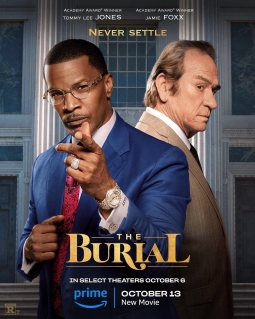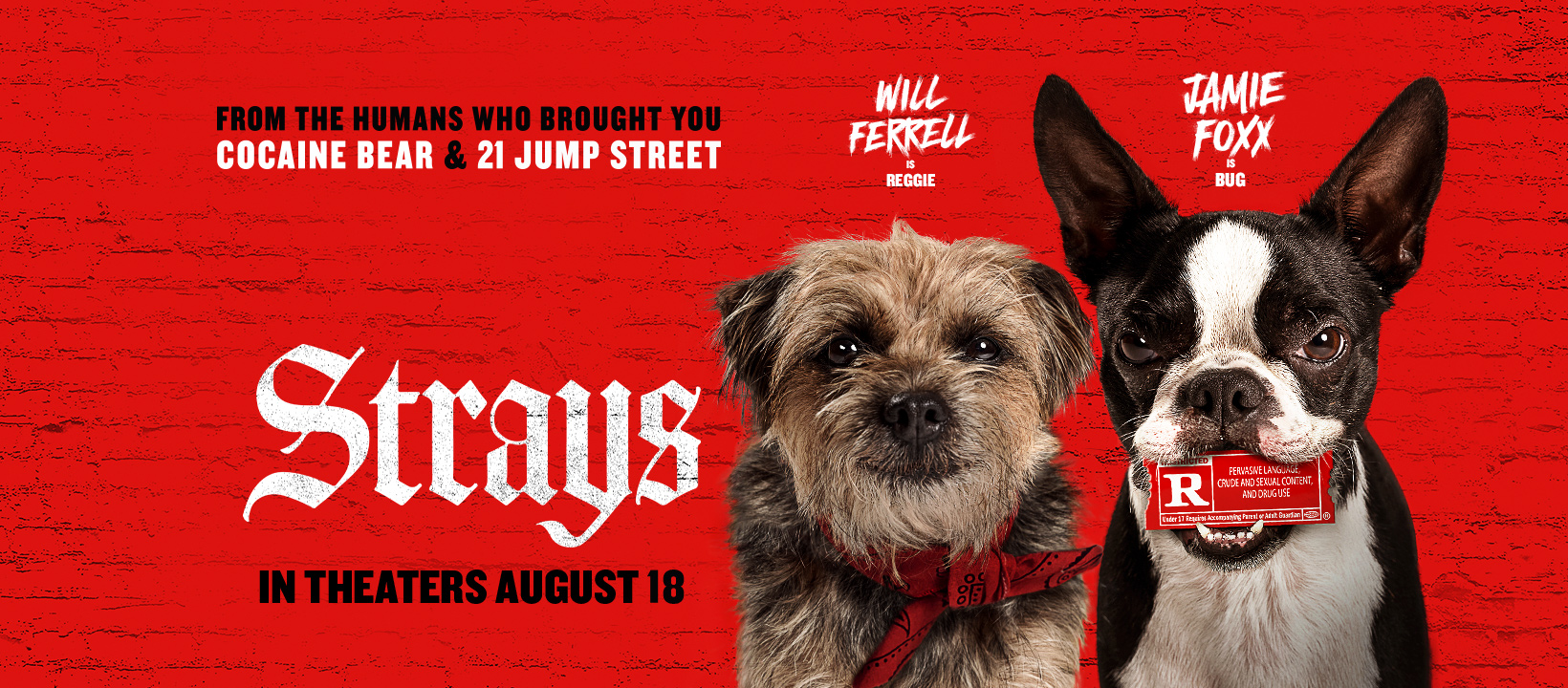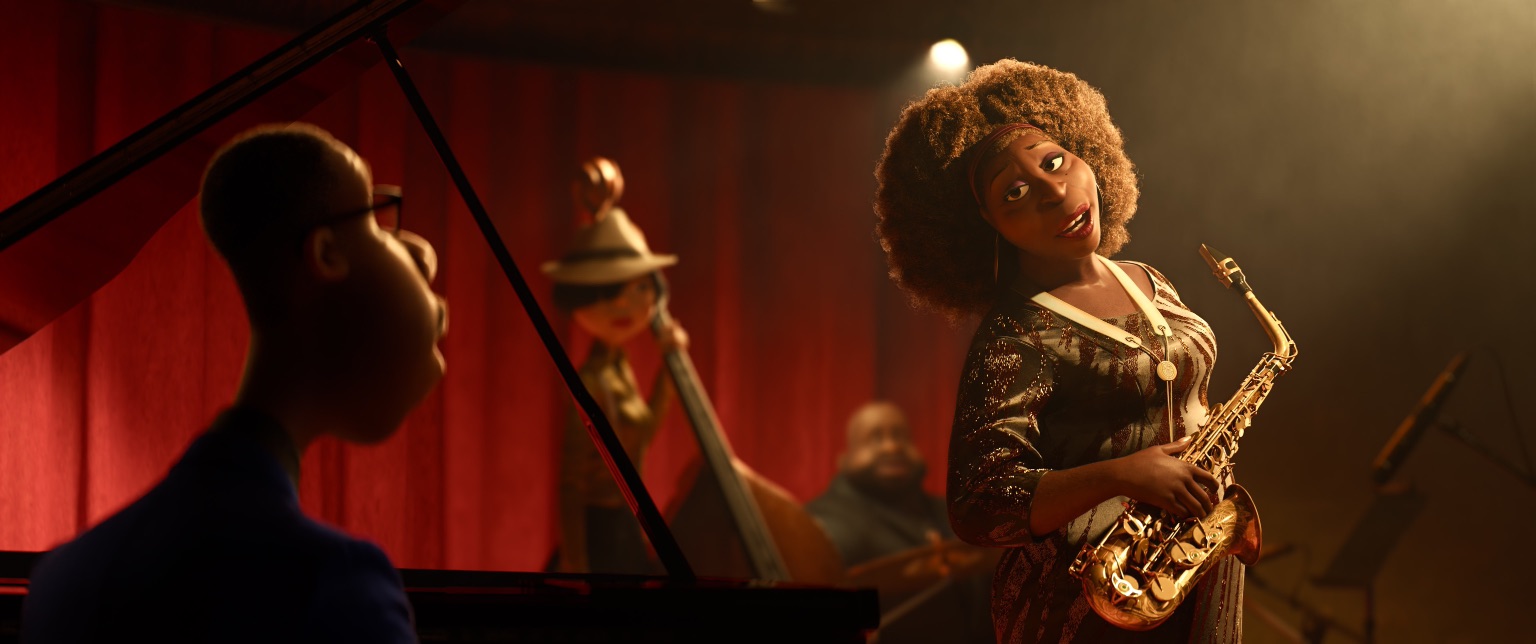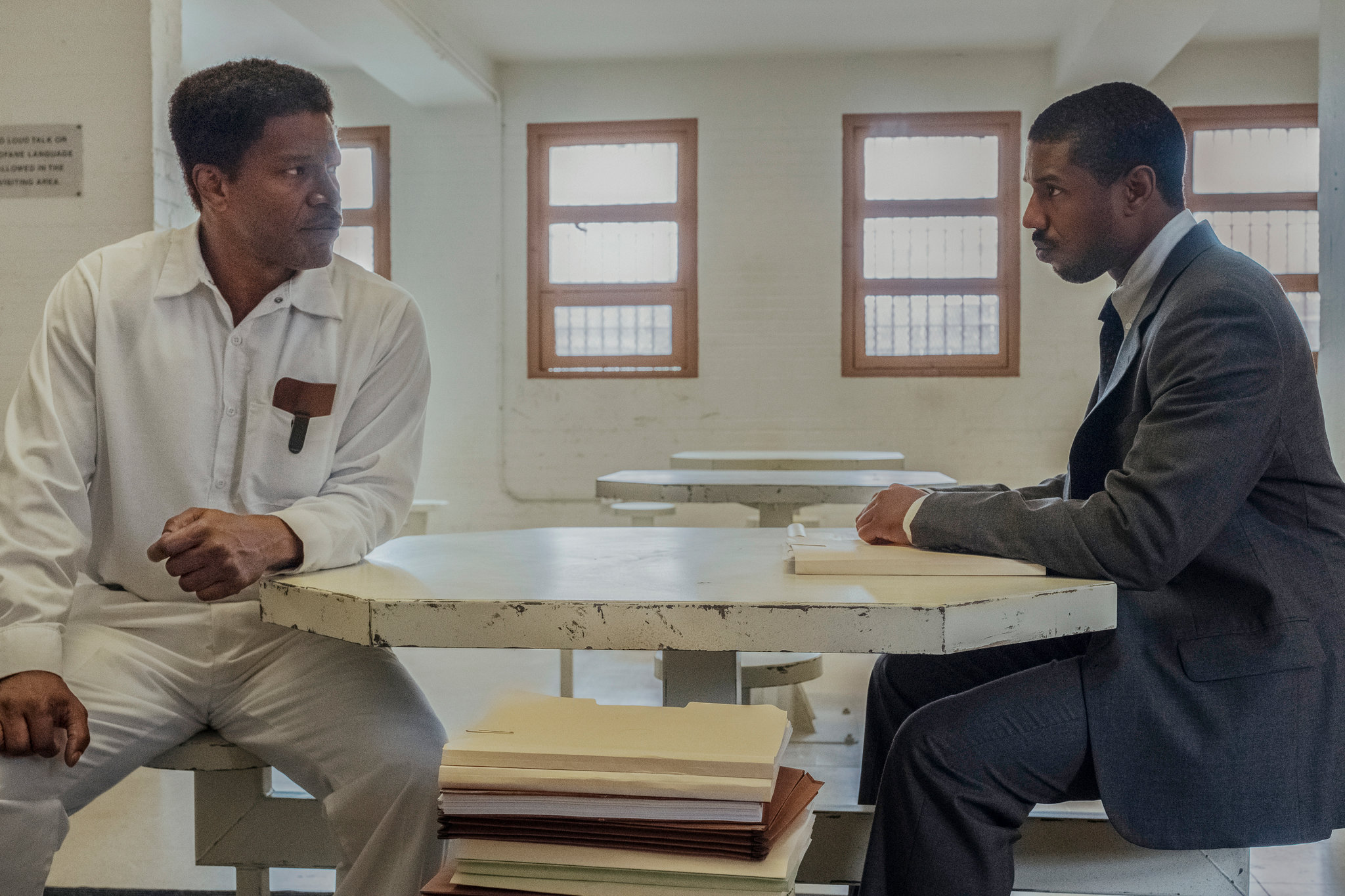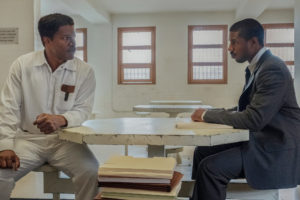The Burial
Posted on October 12, 2023 at 5:24 pm
B +| Lowest Recommended Age: | High School |
| MPAA Rating: | Rated R for language |
| Profanity: | Strong language, racial epithets |
| Alcohol/ Drugs: | Some alcohol |
| Violence/ Scariness: | References to violence |
| Diversity Issues: | A theme of the movie |
| Date Released to Theaters: | October 13, 2023 |
The old lawyer’s adage is: When the facts are against you, argue the law. When the law is against you, argue the facts. When the facts and the law are against you, pound the table. Willie Gary, a sharecroppers son who became one of the most successful litigators of all time, likes to do all three. In this enormously entertaining film based on one of his most satisfying cases, a Biloxi, Mississippi funeral home owner vs a gigantic funeral conglomerate.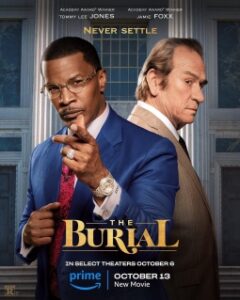
It takes place in 1995. Tommy Lee Jones plays Jeremiah O’Keefe, a 75-year-old decorated WWII veteran, father of 13, and respected member of the community who served two terms as the town’s mayor. His one wish is to pass on the family funeral business, including burial insurance, as his father and grandfather did. When the bueiness falls on hard times and he is unable to keep the required amount in the insurance company’s bank account, he reaches out, through his lawyer Mike Allred (Alan Ruck), to an enormous Canadian firm that has been buying up funereal homes. O’Keefe flies to Canada, where he is entertained on the $22 million yacht of the conglomerate’s CEO, Ray Loenwen (Bill Camp). They shake hands on a deal for Loewen to purchase three of O’Keefe’s funeral homes, which will give him the cash he needs to satisfy the insurance regulators.
But months go by and somehow the deal never closes. Hal Dockins (Mamoudou Athie), a young lawyer O’Keefe has taken on because he is the son of an old friend, suggests that the Loewen offer was never serious, just a tactic to drive the O’Keefe homes into bankruptcy so he could buy them cheaply. Despite Allred’s qualms, O’Keefe decides to sue. Hal recommends a lawyer he’s seen on the television series, “Lifestyles of the Rich and Famous,” Willy Gary (Jamie Foxx), who loves to flaunt his mansion and his private plane, called “Wings of Justice.” O’Keefe flies to Florida to watch Gary in action and decides, over Allred’s strong (and admittedly racist) objections to make him lead counsel. They file suit in a county that is majority poor and Black, and that is where the judge and jury will come from.
And so, we sit back in happy anticipation because we know how this is going to end and we know it will be a lot of fun on the way there. Foxx is every bit as electrifying as the man he is portraying, whether at the pulpit or addressing the jury, and his fellow Oscar-winner Jones is superb in the quieter role of a decent man who will not allow others to treat him indecently. Some of the details are adjusted or ramped up for dramatic purposes. For example, the real-life lead counsel for Loewen was a white, male, former Mississippi Supreme Court Justice, not a young, beautiful Black woman, heading a team of top Black lawyers.
But it is much more fun to see Jurnee Smollett as the entirely fictional Mame Downes, who lives up to her character’s nickname, The Python, as the lead defense counsel hired by Loenwen because of her outstanding credentials, and also because, in the words of the plaintiff’s team, “she out-Blacked and out-womaned us.” Athie has great screen presence as the young lawyer and Amanda Warren is wonderfully warm and elegant as Gloria, Willie’s wife, who gives him some very wise advice. Pamela Reed, a favorite of mine for years, makes us see the relationship O’Keefe and his wife have created over the decades. But Camp, always watchable, is limited here by an under-written bad guy character so one-dimensional he is cartoonish.
Foxx and Lee have a crackling chemistry that makes me hope they work together again. Director/co-writer Maggie Betts keeps their developing friendship through shared values as the heart of the film, with a lively, energetic tone that had the theater audience cheering.
Parents should know that this film has some very strong language including racial epithets used by Black characters and some discussion of racist abuses in the past and in the present day of the film. Characters drink alcohol.
Family discussion: Would you hire Willie Gary? Why didn’t Jerry accept the settlement offer? What would you do with $175 million?
If you like this, try: “Marshall,” about a real-life early case for later Supreme Court Justice Thurgood Marshall, and read the article that inspired the film

